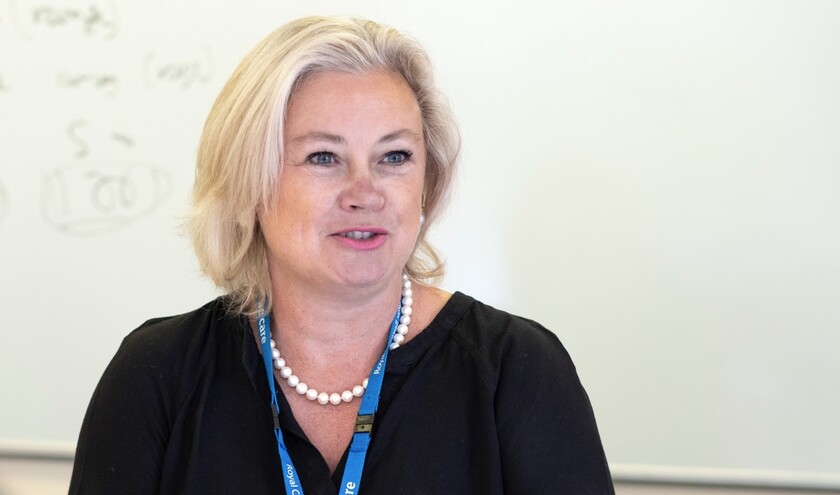Shields, has spent eight years in Cornwall, including four as ICB chief executive and four years at the Royal Cornwall Hospital acute trust as chief executive. She has also worked as the national head of specialised commissioning. Shields spoke to me ahead of stepping down from the ICB at the end of this month, having decided not to enter the process to become head of the new NHS Cornwall and Isles of Scilly and Devon ICB cluster.
Shields is leaving at a crucial juncture for the NHS with ICBs having been given the remit of strategic commissioner.
‘Commissioning as a distinct skill set is going to be important no matter what happens next,' Shields reflected.
‘I think we get very confused around the role of organisations like ICBs and how IHOs or other different contractual forms may start to move some commissioning responsibilities away from ICBs and to other partners. Whatever happens the centre of gravity for commissioning must centre around the populations we serve not the institutions that provide care.
‘I think it's really important that people realise that in and of itself, commissioning can be done anywhere; it is a process. It is about population health improvement. It's not about individual organisations and it requires an absolute alignment with general practice, because they are the last universal service.
‘They hold all of the population health data from a utilisation of service perspective for the whole of the NHS. As such they are best placed to coordinate a more proactive and risk stratified model of care.
‘So, I think it's important that we remember that as we move into potentially new models of commissioning delivery.'
Shields reflected that strategic commissioning was already very much what ICBs do with their focus on overall population health and narrowing the mortality gap through concentration on areas of the population in greatest need to ensure an optimum return on interventions and the health index.
‘There will be specific services, cohorts, geographies, where we might be asking either collaboratives of providers or one provider with a contract on behalf of others, so an integrated health contract for example, to deliver services against a clear specification,' Shields noted.
‘We've not really done that for our population, but you could see how if you rolled out a contract around cardiovascular disease, for example, that you would be asking somebody to manage all points of delivery through an end to end pathway that ends up with less people having intervention or having a heart attack or a stroke, and more people having managed blood pressure and atrial fibrillation detection.'
Shields said these new models ‘could be quite exciting' but highlighted the need for a commissioning skill set for delivery, adding: ‘It has to be routed back to population health or it won't work.' Shields said she was optimistic the new approach would be more effective in terms of delivering better and more joined up healthcare outcomes.
‘The overall affordability of NHS healthcare is challenged at the moment through the models of care that we've got and the way we've spent our money,' she noted.
‘The focus on commissioning has to be about how we stabilise a system that's already stretched and we must find the headroom to be able to invest in the cohorts of people for whom investment now will reduce the burden of ill health on them and the NHS over time.'
The outgoing ICB chief said this was a ‘really big ask' for ICBs adding: ‘It's one that if we don't do now we will regret in the short to medium term.'
The ICB head said there were some ‘great opportunities' for strategic commissioning, highlighting the example of atrial fibrillation detection where more focus could reduce thrombotic strokes with a return on investment of just six months.
‘We could be building into our plans for next year some service change that would give us headroom to do other things,' Shields noted. ‘I think as strategic commissioners, we probably need to be a bit braver about how we disinvest from services that don't add value and make sure that we reinvest in services that add more. Without this commitment there will be no channel shift.'
When asked for other examples of how ICBs could deliver more value through commissioning, Shields cited the example of Professor Klaber, a consultant general paediatrician and director of strategy, research and innovation at Imperial College Healthcare, who reduced the number of people referred to outpatients dramatically by setting up diabetes and paediatric hubs in London. This was over 15 years ago, however, a similar model delivered in St Austell, an area of significant deprivation in Cornwall, delivered the same results. The ICB boss said the approach had been trialled in Cornwall in an integrated neighbourhood health team in paediatrics resulting in a 25% drop in the number of children referred to outpatients. ‘The control of people seen in that service improved and overall health gain was better,' Shields noted.
‘We should be looking at outpatients in a different way,' Shields said, highlighting the NHS spent more on outpatients nationally than on general practice. ‘It's these sorts of changes where we can get better value and where people can get better control of their health,' she said.
The ICB chief executive also cited the example of frailty at a local acute trust where over 40% of the beds were filled with frail patients. A quarter of over 65s admitted did not have a ‘dominant procedure' while in hospital. Shields commented: ‘This is a real opportunity to change the model of care, reducing hospital acquired deconditioning and returning capacity back to the acute trust. If a significant group of those people could be managed somewhere else, what's the opportunity for elective recovery for more complex care being delivered through those beds that would give value both to the people who move out into other services and those who get faster access?'
The ICB chief said there were also ‘massive opportunities' in terms of strategic commissioning to map where and when services are available so that patient flow doesn't automatically go to a centralised A&E.
Shields highlighted how strategic commissioning could support the shift to neighbourhood health, adding: ‘In order for neighbourhood health to work, strategic commissioners are going to have to create an infrastructure of services that neighbourhoods can use.
Cornwall and The Isles of Scilly was recognised for its groundbreaking work by being chosen as one of 43 neighbourhood health pioneers this month.
Shields said ‘strategic commissioners could help provide additional choice to neighbourhood health teams by looking at where they spend just a small amount of money and also support GPs running neighbourhood health services through population data sets, segmentation, time for clinical leadership and their ability to pull their people together.
With the support of strategic commissioners, integrated neighbourhood teams from the NHS Cornwall and the Isles of Scilly and social care local authority teams, GPs are able to work in partnership and tell the ICB which people require greatest support.
It's an exciting vision of the NHS and local authorities working in partnership to deliver joined up care and to address healthcare inequalities which Cornwall and the Isles of Scilly looks set to be at the heart of.



